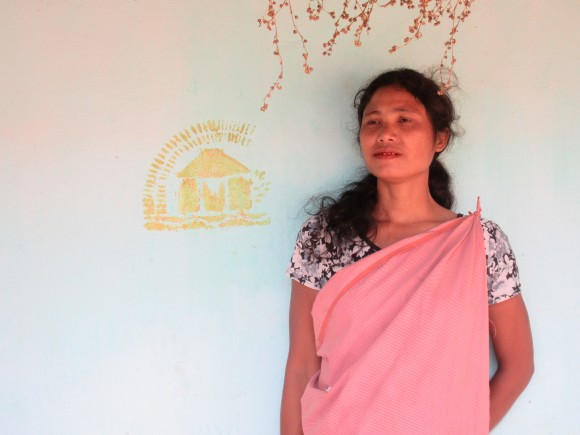Hidden in the mountains and only accessible through the Siliguri Corridor is Satabaini Chandamari, one of the numerous remote villages of North-Eastern India. This region is the most geographically isolated area and has been historically out of reach of mainstream service delivery. Many of its 39 million inhabitants struggle daily to fight poverty, often unaware of their entitlement to public services.
Supporting access to public services for vulnerable communities
In 2014, ACTED launched an EU-funded project to improve access to and quality of public schemes for the most vulnerable communities of this region. ACTED and its local partners North East India Committee on Relief and Development (NEICORD) and Public Affairs Centre (PAC) aim to improve access to public services for India’s most vulnerable populations by raising their awareness through mobile alerts as well as via community volunteers who inform and support beneficiaries.

Giving birth safely and free of charge
Among the 650,000 households of this project is Marak, a 27-year-old woman who gave birth to a healthy child last January in Goalpara Civil Hospital. Thanks to project volunteers from her community, Marak was informed about a public service helping pregnant women during and after delivery. Rather than at home, which would have increased the risk of complications, she gave birth in a public hospital under medical supervision. Marak smiles now, happy to have been informed about this cost-free public service. She also benefits from another public scheme which gives her 1,400 Indian Rupees (equivalent to 20 Euros) to cope with the first basic costs that the birth of a child involves.
A safe house for a new beginning
In the same district, Tairimon, a 40-year-old woman, used to live in a mud and thatch house with her two daughters and husband. During rains, water leaked through the thatch, causing damage inside the house and to her children’s health. Until Tairimon attended a community meeting organised by ACTED and local volunteers, where she was informed that she was entitled to a public housing scheme providing them with about 75,000 Indian Rupees (around 1,000 EUR) for the construction of a house. Nowadays, Tairimon and her family live in a brick and tin house, which they constructed themselves thanks to that fund, and she can provide her children with a safe place to live.
Inspiring stories like Tairimon and Marak’s are only few examples of what ACTED’s impact on the ground looks like. Having started three years ago and with still another year for the project to keep running.
